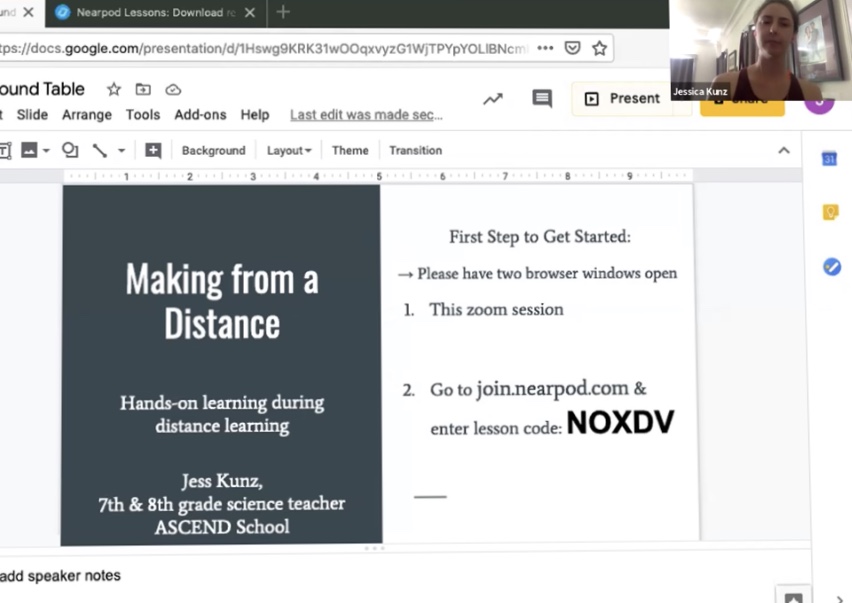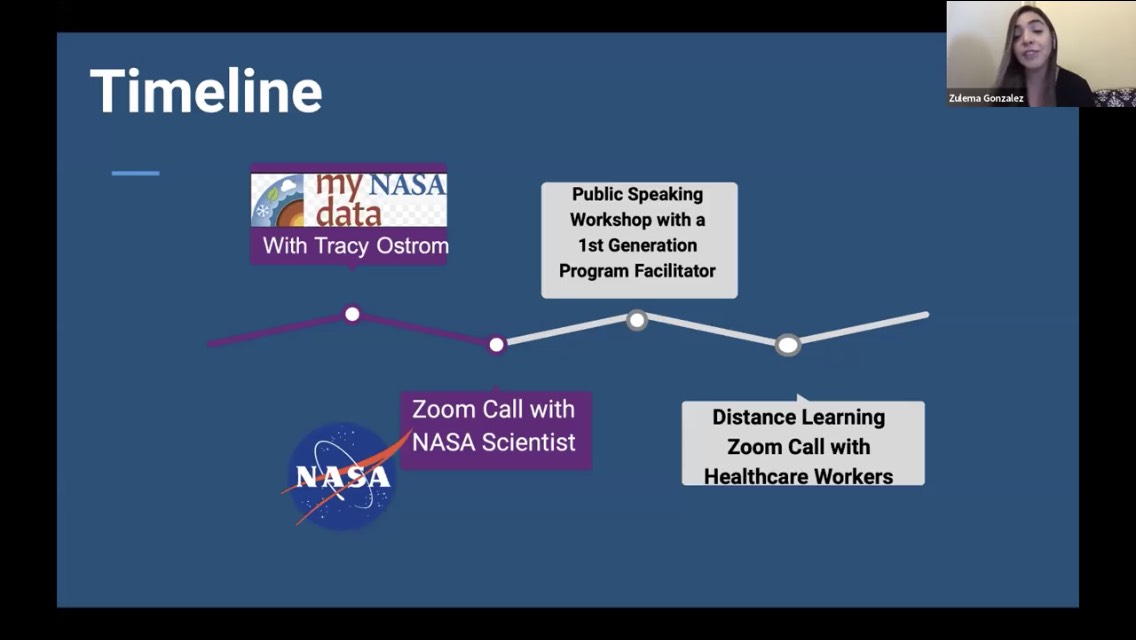News - WestEd/UC Berkeley
GLOBE-at-Home Strategies for Success!
Although schools around the world have paused in-person learning, that hasn’t stopped GLOBE Mission EARTH (GME) teachers Jessica Kunz and Zulema Gonzales from providing GLOBE-infused STEM learning for their students. During a recent round-table virtual presentation hosted by GME, these teachers shared examples of their lesson plans and strategies to engage students' STEM (distance) learning.

Jessica Kunz is a 7th and 8th grade teacher at ASCEND Charter school in Oakland, California, USA. ASCEND’s student population is 81 percent free/reduced lunch and more than 93 percent Hispanic. Prior to the dismissal of school, her students were each loaned a Chromebook. Since that time, her students have continued their learning using virtual meetings and Nearpod. (Nearpod is a web-based platform that transforms student devices into learning tools.)
In addition to virtual meetings, every Wednesday students have been engaged in a “Maker Workshop,” using the NASA STEM-at-home website. She was able to obtain a grant to send students a set of materials and guide them in creating a prototype of an item that they made at home. Jessica said that the purpose of the Maker Workshop is to provide students with less computer-based learning and more hands-on learning. The Maker Workshop requires students to review the NASA-at-home STEM building activities and brainstorm ideas on what materials they have around the house. Students then created their own version of the NASA build project. She also engaged students by having them ask questions about other students’ projects.

Zulema Gonzales is an anatomy and physiology teacher for the Public Health pathway at Rudsdale Newcomer High School. Rudsdale’s population consists of students born outside of the United States who have been enrolled in U.S. schools for less than three years, including refugees and asylum seekers. Their population also includes students who are unaccompanied minors, who entered the U.S. without a guardian. Zulema described how she works with her students and the community to stimulate STEM learning despite not being able to meet face-to-face with her students.
She explained that she started the year with GLOBE by collecting aerosols measurements and comparing the data to the students’ home countries of Honduras and Guatemala. After in-person learning was discontinued and distance learning began, she leveraged her community members to keep her students engaged with the health affects of shelter in place on air quality and respiratory health. She reached out to health care workers, including respiratory therapists, to set up virtual presentations. Students were able to discuss how the COVID-19 pandemic has affected their current living situations, including understanding and interpreting the data communicated by the media and medical field. Students also discussed how the pandemic affected their GLOBE research and questioned how it affected air quality in their home countries. She was encouraged that the community health professionals were able to engage students who previously had not been interested in participating in distance learning.
type: globe-newsNews origin: WestEd/UC Berkeley





